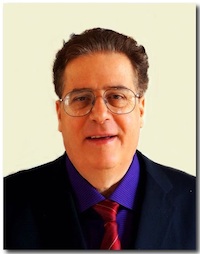Craig Franklin Chambers, Attorney at Law
News and Cases - Premises Liability for Aurora Theater Shooting
Prison transfer of Aurora theater shooter thwarted plan to question him
Lawyers for victims of the 2012 attack on the Century Aurora 16 theater are unable to depose James Holmes
The man who murdered 12 people in an Aurora movie theater was transferred to an out-of-state prison as little as a day before he was scheduled to be deposed in a lawsuit, court documents reveal.
The move was the second time that a transfer had thwarted efforts by lawyers for victims of the attack to question James Holmes under oath.
Colorado Department of Corrections officials now won't say where killer is. Lawyers for theater shooting survivors and victims' families say that means they likely won't ever be able to question the man whose statements could have an enormous impact on whether the movie theater's owner is considered liable for the attack.
"Due to this transfer and the circumstances surrounding it, Plaintiffs' counsel was told that Holmes could not be made available to be personally deposed or called as a witness to testify at trial," lawyers for the survivors and victims' families wrote in a court motion.
More than 60 survivors of the 2012 attack and relatives of the slain victims have sued theater owner Cinemark, alleging that the company should have foreseen the possibility of an attack and done more to protect against it. The claims are now divided into two lawsuits — one in state court and one in federal court — both of which are scheduled for trial later this year.
In the state case, lawyers for the victims twice scheduled a deposition of Holmes, where they would have been able to ask him questions under oath about his planning for the attack and his choice of the theater as a target.
But the first deposition was canceled when Holmes was moved from a prison in Cañon City to one in Pueblo. The deposition was then rescheduled for Jan. 21.
On Jan. 20, though, Colorado corrections officials announced that the killer had been moved again — this time under an alias — to an undisclosed prison. A prisons spokeswoman later confirmed that the transfer occurred under the "interstate corrections compact."
Department of Corrections spokeswoman Laurie Kilpatrick said Holmes, who had become a target for attacks in prison, was movedfor his own safety and the safety of corrections employees. She said the transfers had nothing to do with the timing of the depositions.
"I'm not even sure we were aware of his deposition," she said.
Regardless, the transfer could have a significant impact on the civil trials.
In both the state and the federal case, Cinemark has designated Holmes as a "nonparty at fault." That means the theater company will try to convince jurors that they should blame him for the attack and not the company. The more blame jurors place on Holmes, the less they place on Cinemark, lowering the company's liability.
To counteract that in the state case, lawyers for the victims are hoping to get Holmes' notebook entered into evidence, according to a court motion filed this month. In the notebook, Holmes details his planning for the attack, including scouting the Century Aurora 16 theater and taking notes on its vulnerabilities.
But Littleton civil attorney Craig Chambers, who is not involved in either lawsuit against Cinemark, said a deposition of the killer could have proved more valuable, if he said "there was something about that theater that made it (an) easier (target) than another theater."
Likewise, Chambers said a deposition could help Cinemark if Holmes said he picked the theater for reasons having nothing to do with its security measures.
"You can't really say until you know," Chamber said. "It's all about whether you can sway the jury that this was foreseeable."
Send Craig A Message

